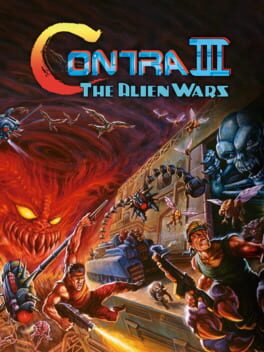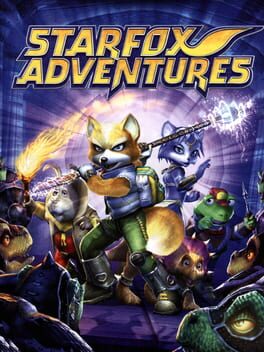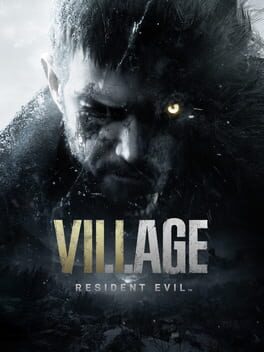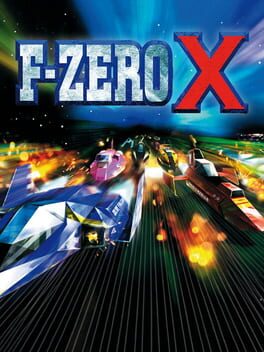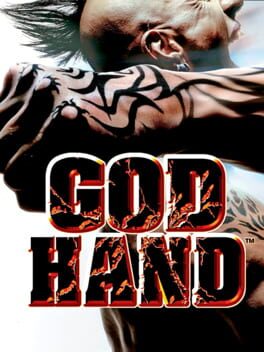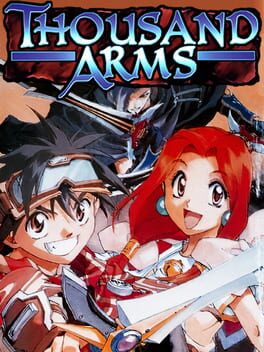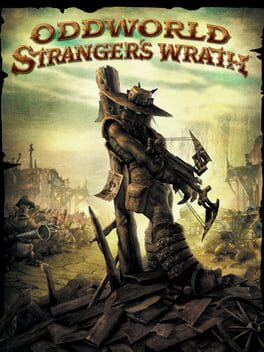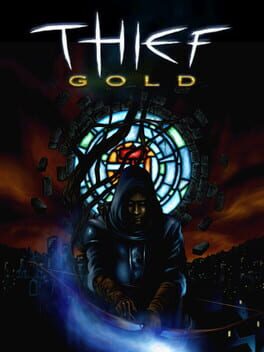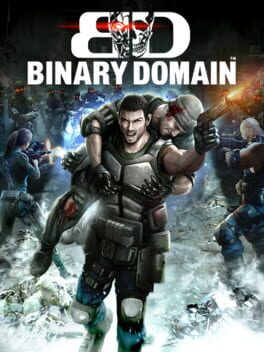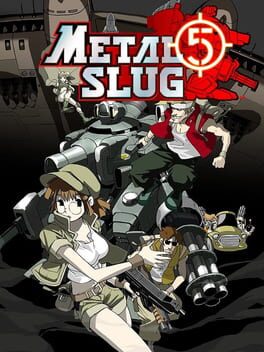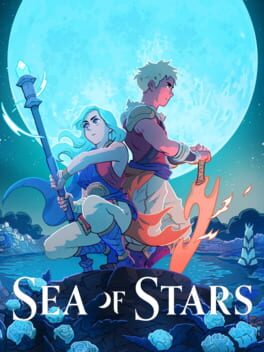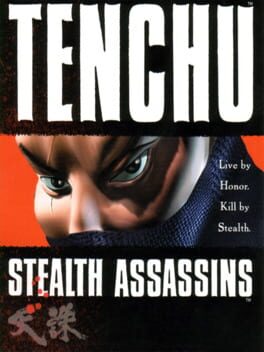Tenzin
I'm beginning to think that the first Contra is the only great one. I remembered this being a lot better: the switchable weapons, the goofy special attack, the climbing, the numerous minibosses. It seems to point towards something expansive, where movement and creativity are what's being asked of the player.
In practice, it's usually the opposite. This is a very rigid, cramped game. It constantly forces the player into small areas, to wait, to occupy just this part of the screen and no more. When you know what to do it feels like a solved equation instead of a fight. And the interstitial non-sidescroller levels were always an issue with Contra games, but those top-down Mode 7 levels are the worst. Ugly, disorienting, and simplistic. Also what's up with that legacy-obsessed last level? It's more than a little embarrassing fighting watered-down bosses from the two prior games.
Yeah, it's still Contra. The sidescrolling levels had never looked as good. It's responsive to be sure, and when the game encourages movement (like the stage 3 boss) it can be a pretty good time. But going back and playing this was a really disappointing experience.
In practice, it's usually the opposite. This is a very rigid, cramped game. It constantly forces the player into small areas, to wait, to occupy just this part of the screen and no more. When you know what to do it feels like a solved equation instead of a fight. And the interstitial non-sidescroller levels were always an issue with Contra games, but those top-down Mode 7 levels are the worst. Ugly, disorienting, and simplistic. Also what's up with that legacy-obsessed last level? It's more than a little embarrassing fighting watered-down bosses from the two prior games.
Yeah, it's still Contra. The sidescrolling levels had never looked as good. It's responsive to be sure, and when the game encourages movement (like the stage 3 boss) it can be a pretty good time. But going back and playing this was a really disappointing experience.
Something a bit cavernous about this one. It's big but it's small. It's a grand world in the balance narrative where you're just a corporate grunt. You pilot something that's 2 or 3 stories tall but feel like a flea in movement and in contrast to the surroundings. It's an operatic AAA new school Fromsoft title laid over the B-grade old school structure of their longest running series. I've played the first AC and I thought it was tough and atmospheric, but a lot of that is gone here in favour of spectacle.
This one's easy and smooth. Every piece of military machinery short of the stage bosses is easily taken care of. It's elegant, and in its finest moments feels like a dance on ice. The story with it callsign machismo and tinny voices feels convoluted and hard to care about at first, but it does a good job of clarifying itself as it progresses. The NG+ variations are welcome, but they don't change enough of the game up enough for me to march all the way through them.
A weird one. Some fun highs for sure but the moment to moment of it I found a bit underwhelming. Basically a perfect rental though, if those still existed.
This one's easy and smooth. Every piece of military machinery short of the stage bosses is easily taken care of. It's elegant, and in its finest moments feels like a dance on ice. The story with it callsign machismo and tinny voices feels convoluted and hard to care about at first, but it does a good job of clarifying itself as it progresses. The NG+ variations are welcome, but they don't change enough of the game up enough for me to march all the way through them.
A weird one. Some fun highs for sure but the moment to moment of it I found a bit underwhelming. Basically a perfect rental though, if those still existed.
2016
Contains probably the most believable being found in the medium so far, and I think that's worth a lot. The game is built around you understanding it and it understanding you, and it achieves this with an elegant mix of writing and game design. The story is intelligently presented; it's beautiful and moving---perhaps moreso than Ueda's other games.
And while it gets scale and detail right, with a vertigo-inducing world of towers and dilapidated ruins, it can feel like a series of puzzle rooms at times. A less contrived or even slower sense of progression would have been more welcome in my view, as its instances of stillness and idle behaviour were among my favourite moments.
Common complaints about this game seem to align with a common idea of what a good game is (smooth, responsive, agreeable), but the ways in which this game underperforms, or performs in an unconventional way, all strike me as either artistic choices or technical bargains that preserve or enhance what the game is doing that is exceptional. It's imperfect to be sure, but it achieves something no other game has and still feels ahead of its time.
And while it gets scale and detail right, with a vertigo-inducing world of towers and dilapidated ruins, it can feel like a series of puzzle rooms at times. A less contrived or even slower sense of progression would have been more welcome in my view, as its instances of stillness and idle behaviour were among my favourite moments.
Common complaints about this game seem to align with a common idea of what a good game is (smooth, responsive, agreeable), but the ways in which this game underperforms, or performs in an unconventional way, all strike me as either artistic choices or technical bargains that preserve or enhance what the game is doing that is exceptional. It's imperfect to be sure, but it achieves something no other game has and still feels ahead of its time.
2002
The worst game I've finished in a while. It borrows a ton from 3D Zelda, and in way less graceful way than Banjo borrowed from Mario 64. The controls, the lock and key design, the finding a new item animation---none of the things that made 3D Zelda good exactly, and the absences, like the genuine sense of place, the atmosphere, the mystery, the sound work, the intuitive world design, the puzzles, the characters, it's all missing. Its a world of dinosaurs where none of them are interesting and their world feels like it was built for a fox who carries a thousand items.
But it's less than a ripoff of 3D Zelda that doesn't work, it's all embellished further by all the worst tendencies of Rare's design at the time. It's long, bloated, full of tedious backtracking, fetch quests, a load of pointless resources and collectables, embarrassing minigames, and no feeling for storytelling in the slightest. I know it's not Starfox, it's Dinosaur Planet, but would it have hurt to have the arwing segments feel more robust and better implemented than the gummi ship interludes in Kingdom Hearts? It's Dinosaur Planet alright, and like that game it still feels unfinished.
But it's less than a ripoff of 3D Zelda that doesn't work, it's all embellished further by all the worst tendencies of Rare's design at the time. It's long, bloated, full of tedious backtracking, fetch quests, a load of pointless resources and collectables, embarrassing minigames, and no feeling for storytelling in the slightest. I know it's not Starfox, it's Dinosaur Planet, but would it have hurt to have the arwing segments feel more robust and better implemented than the gummi ship interludes in Kingdom Hearts? It's Dinosaur Planet alright, and like that game it still feels unfinished.
It somehow wants you to care about what is happening to the literally faceless man and his family as it ushers you from segment to segment that might as well be set on different planets. The opening is atrocious, and makes it immediately clear that yes, this is another RE game modeled after 4 that misses the point so hard it even messes up Mercenaries.
But somehow I don't hate it. It functions as a shooter better than the previous title. It's totally incoherent, but it is actually pretty enjoyable for half hour stretches at a time. 7 was increasingly disappointing as it went along, but this announces itself as nonsense and then provides some amusing designs and scenarios that have probably been kicking around for a while but never made sense in Resident Evil. I guess this was the point where they decided screw it.
It's a plate of overcooked leftovers, but sometimes you want to stay in and eat that on a rainy day.
But somehow I don't hate it. It functions as a shooter better than the previous title. It's totally incoherent, but it is actually pretty enjoyable for half hour stretches at a time. 7 was increasingly disappointing as it went along, but this announces itself as nonsense and then provides some amusing designs and scenarios that have probably been kicking around for a while but never made sense in Resident Evil. I guess this was the point where they decided screw it.
It's a plate of overcooked leftovers, but sometimes you want to stay in and eat that on a rainy day.
1998
Carries forward the speed and attitude of the original title, and that isn't a bad thing really. The music is given fuller rock instrumentation, and the racers are plentiful and have their own portraits and 2D sprites that provide personality. The inclusion of combat mechanics combines these two focuses well, and it's a smart addition that's risky but can have a big payoff, suiting the volatility of the races. To achieve its sense of speed, the game prioritizes performance. A steady framerate with all those racers and all the track flying by is pretty commendable when so many N64 titles were choppy.
But the overall look of the game suffers a bit for the cost of that performance. Tracks aren't that detailed, vehicles often look blocky (I've heard it called 'soap racer' and at certain distances that tracks), and something about the aesthetic just isn't that attractive. I liked the first game for its vivid colour and mysterious locations, and this game looks washed out and indistinct.
Moreover the game shows the flaws in its game design as you climb in difficulty. Early on you just feel puzzled when you boost next to a racer accelarating normally and don't make up any ground, but when you start playing on expert it becomes obvious that the rules the other racers play by just aren't the same. Rubberbanding gets egregious, and while I managed to beat a couple cups on this difficulty, it felt more like blind luck to me.
It's a solid and distinct racer for the system, a nicely polished iteration, but I think it loses a little bit of the magic and doesn't offer up many surprises.
But the overall look of the game suffers a bit for the cost of that performance. Tracks aren't that detailed, vehicles often look blocky (I've heard it called 'soap racer' and at certain distances that tracks), and something about the aesthetic just isn't that attractive. I liked the first game for its vivid colour and mysterious locations, and this game looks washed out and indistinct.
Moreover the game shows the flaws in its game design as you climb in difficulty. Early on you just feel puzzled when you boost next to a racer accelarating normally and don't make up any ground, but when you start playing on expert it becomes obvious that the rules the other racers play by just aren't the same. Rubberbanding gets egregious, and while I managed to beat a couple cups on this difficulty, it felt more like blind luck to me.
It's a solid and distinct racer for the system, a nicely polished iteration, but I think it loses a little bit of the magic and doesn't offer up many surprises.
2006
It has one of the most kinetic and gratifying combat systems of its time, and it feels like it puts all of its attention into making sure its bones work. More than just the variety of moves, the sense of impact, the sound design---it puts a lot of effort into the speed at which characters approach you, how they behave on and off camera, and how they attack you in groups. It's unnatural but it creates interesting rhythms; Resident Evil 4's combat is arranged in a similar way, and I think it's something that more games should pay attention to.
God Hand has this lovely core, but I feel like it doesn't know how to support it. Its very silly narrative and central aesthetic owing to Fist of the North Star, tokusatsu, and wrestling works as a frame, as a kind of motivation, but the narrative has nothing to do with why anyone would want to play this game and I think it knows it. The manner in which its inspirations don't fit together is often more compelling than the manner in which they do.
Also the level design and art direction don't do anything to help out the game. We have enemies that crumple and rocket about, but the environment doesn't support any of this elasticity. It's just a bunch of cheap theming. It looks like the scenery is going to fall apart at any moment, and yet it doesn't, even as it houses a pinball machine full of musclemen. Imagine if walls burst open, the ground opened up, buildings toppled---if the spectacle playing out felt as if it wasn't contained in an invincible shoebox.
God Hand is fun and even thoughtful, but it feels oddly prototypical, almost like a beta to a truly great game.
God Hand has this lovely core, but I feel like it doesn't know how to support it. Its very silly narrative and central aesthetic owing to Fist of the North Star, tokusatsu, and wrestling works as a frame, as a kind of motivation, but the narrative has nothing to do with why anyone would want to play this game and I think it knows it. The manner in which its inspirations don't fit together is often more compelling than the manner in which they do.
Also the level design and art direction don't do anything to help out the game. We have enemies that crumple and rocket about, but the environment doesn't support any of this elasticity. It's just a bunch of cheap theming. It looks like the scenery is going to fall apart at any moment, and yet it doesn't, even as it houses a pinball machine full of musclemen. Imagine if walls burst open, the ground opened up, buildings toppled---if the spectacle playing out felt as if it wasn't contained in an invincible shoebox.
God Hand is fun and even thoughtful, but it feels oddly prototypical, almost like a beta to a truly great game.
1998
I like some of the visual design here. I'm a big fan of 2D characters in 3D environments, and this game does it in a charming, high-color way. The towns are attractive, full of fun detail and structures that the camera weaves and rotates around. Speaking of the camera, I really like how swirls down into the action during dialogue to substitute its character sprites for their anime counterparts.
Virtually everything else about the game is substandard, though. I get it's going for a classic JRPG meets Sakura Wars thing, but the story, combat system, and dating system are all thin and don't feel like they're in conversation with one another. The whole thing is easy, slow, and bloated despite being on the shorter side. Characters aren't well developed, the world doesn't feel coherent or alive, and the story is the usual. Think of a JRPG plotline, it's that. Some of the technique being applied here is impressive to me, but what it's being applied to leaves a lot to be desired.
Virtually everything else about the game is substandard, though. I get it's going for a classic JRPG meets Sakura Wars thing, but the story, combat system, and dating system are all thin and don't feel like they're in conversation with one another. The whole thing is easy, slow, and bloated despite being on the shorter side. Characters aren't well developed, the world doesn't feel coherent or alive, and the story is the usual. Think of a JRPG plotline, it's that. Some of the technique being applied here is impressive to me, but what it's being applied to leaves a lot to be desired.
This review contains spoilers
A weird game, but probably my favourite of the Oddworld titles I've played. Like the others, the setting is imaginative and there's an endearing doofishness to all the dialogue and characters. Where this one diverges from the others is that it's interesting in a mechanical capacity. Merging a third person adventure game with a first person shooter featuring stealth as a central focus is ambitious to say the least.
Moreover, its conceptual approach to a shooter, where ammunition takes the form of different wildlife which can then be replenished or harvested in the wild is a pretty original idea. Functionally it doesn't make the biggest difference, but I thought it played into this series' concerns of environmentalism and exploitation really well.
It's flawed despite its good ideas, with some general clunkiness and uninspired boss fights, but eventually it just topples. This game completely abandons its stealth mechanics, its more open design, and its established atmosphere a little over halfway through, focusing almost entirely on shooting in linear industrial environments. A shame because that first half does some really cool things.
Moreover, its conceptual approach to a shooter, where ammunition takes the form of different wildlife which can then be replenished or harvested in the wild is a pretty original idea. Functionally it doesn't make the biggest difference, but I thought it played into this series' concerns of environmentalism and exploitation really well.
It's flawed despite its good ideas, with some general clunkiness and uninspired boss fights, but eventually it just topples. This game completely abandons its stealth mechanics, its more open design, and its established atmosphere a little over halfway through, focusing almost entirely on shooting in linear industrial environments. A shame because that first half does some really cool things.
1999
It does a couple of things better than just about any game. The first of which is that it's one of the most embodied first person games I've ever played. This is to say that as a player, one feels keenly aware of one's own physical presence. How visible and audible the player is is almost the entire game, and the level design and balance of mechanics make it so that tiptoeing in and out of shadows is naturally dramatic and of consequence. Moreover, the game has a pretty decent movement system; leaping and climbing are actually really enjoyable, and it makes the more exploration-based levels work.
The other thing I like is a little in spite of itself. We can't pretend that Thief isn't set in a generic world, and that its larger story isn't similarly generic and that its major beats don't really land. But its concept and perspective---its choice of lead character and the spaces it puts them in, maintain interest and provide each level with its own arc. Something as simple as having the objectives change mid-mission based on environmental discovery goes a long way in legitimizing and immersing the player within its scenario.
It's a game where individual chunks of it are exquisite, but the quality of the levels, which I'll add feel very separate from one another, is inconsistent. There is glue holding it all together and that glue is very visible. Sometimes it's visible in its narrative presentation and other times it emerges as mission design that feels contrived (the switches in Undercover, the ghost fetch quest in the otherwise terrific Return to the Cathedral). Thief is an imperfect game with a wonderously imaginative central premise and mechanical execution. I'm looking forward to playing the sequel.
Also a theoretical extra half star for The Dark Project over Gold. Two of the additional levels are the worst in the game and just add bloat.
The other thing I like is a little in spite of itself. We can't pretend that Thief isn't set in a generic world, and that its larger story isn't similarly generic and that its major beats don't really land. But its concept and perspective---its choice of lead character and the spaces it puts them in, maintain interest and provide each level with its own arc. Something as simple as having the objectives change mid-mission based on environmental discovery goes a long way in legitimizing and immersing the player within its scenario.
It's a game where individual chunks of it are exquisite, but the quality of the levels, which I'll add feel very separate from one another, is inconsistent. There is glue holding it all together and that glue is very visible. Sometimes it's visible in its narrative presentation and other times it emerges as mission design that feels contrived (the switches in Undercover, the ghost fetch quest in the otherwise terrific Return to the Cathedral). Thief is an imperfect game with a wonderously imaginative central premise and mechanical execution. I'm looking forward to playing the sequel.
Also a theoretical extra half star for The Dark Project over Gold. Two of the additional levels are the worst in the game and just add bloat.
2012
Japan's take on the gray, cover-based corridor shooter, a genre and aesthetic that hasn't aged well at all. Gears appears to be the chief influence, but the global politics of the late 00's reign supreme here. Binary Domain seems pretty inspired by the War on Terror, with an international group of agents breaking into a sovereign state based on an assumption and causing destruction.
It's in conversation with ideas unique to Japanese sovereignty, its perceived tech supremacy (it's the only country standing against corporate overreach of America in this future), and yet in this Japanese game we play as the foreign agents, navigating an increasingly goofy Hollywoodesque plot. The crew isn't characterized as much more than quippy action heroes on a mission, and somehow it sort of works thanks to some fun voice acting and distinct character designs. There's a bone-headedness to the entire thing that's actually endearing.
The basic humanoid enemy is probably the most enjoyable to fight. They're dynamic, multi-stage foes that can be worn down to crawling chasis or can turn on each other if you bink their heads off. Most of the time they go down too easy, but they can be a real joy to fight in large numbers, though the game seems reluctant to overwhelm the player most of the time.
The environments feel lifeless, the larger bosses are repetitive, it's too easy overall, and boy does it get dumb, but it has an identity. It has some amusing ideas, even if it abandons most of them for theatrics. In its finer moments it combines the two, like how the American and Chinese characters become prickly love interests. It's too much its silly self for me to dislike it.
It's in conversation with ideas unique to Japanese sovereignty, its perceived tech supremacy (it's the only country standing against corporate overreach of America in this future), and yet in this Japanese game we play as the foreign agents, navigating an increasingly goofy Hollywoodesque plot. The crew isn't characterized as much more than quippy action heroes on a mission, and somehow it sort of works thanks to some fun voice acting and distinct character designs. There's a bone-headedness to the entire thing that's actually endearing.
The basic humanoid enemy is probably the most enjoyable to fight. They're dynamic, multi-stage foes that can be worn down to crawling chasis or can turn on each other if you bink their heads off. Most of the time they go down too easy, but they can be a real joy to fight in large numbers, though the game seems reluctant to overwhelm the player most of the time.
The environments feel lifeless, the larger bosses are repetitive, it's too easy overall, and boy does it get dumb, but it has an identity. It has some amusing ideas, even if it abandons most of them for theatrics. In its finer moments it combines the two, like how the American and Chinese characters become prickly love interests. It's too much its silly self for me to dislike it.
2003
It's better than Metal Slug 4. That game felt like a janky rom-hack. This one at least tries to pull things back to a more natural progression of levels. But if we're honest with ourselves the first three games are a coherent trilogy and the two afterwards just feel lost. The big bad this time is something occult, but you still spend the entire game fighting tanks, mechs, and soldiers. I'm not crazy about some of the wackier, drawn-out aspects of the second and third games, but there was a level of commitment and elaboration there that was charming and impressive.
Getting into some finer points: the vehicle sections in this game are mostly yawners. Weapon placement is stringent, enemy arrangement feels bland, and there isn't much in the way of fun bonuses or easter eggs. There's little environmental damage or atmosphere, and levels sometimes change locations abruptly, leading to them feeling a bit incoherent. The difficulty feels about right for Metal Slug though, and some of the bosses, like that bastard sand-submarine, are fun to fight.
In some ways it's the most forgettable Metal Slug title, with the previous game taking the bullet for being such a step back and this one slipping away for being such a small step forward. Overall it feels like it was crafted out of forgotten mid-game levels from other entries.
Getting into some finer points: the vehicle sections in this game are mostly yawners. Weapon placement is stringent, enemy arrangement feels bland, and there isn't much in the way of fun bonuses or easter eggs. There's little environmental damage or atmosphere, and levels sometimes change locations abruptly, leading to them feeling a bit incoherent. The difficulty feels about right for Metal Slug though, and some of the bosses, like that bastard sand-submarine, are fun to fight.
In some ways it's the most forgettable Metal Slug title, with the previous game taking the bullet for being such a step back and this one slipping away for being such a small step forward. Overall it feels like it was crafted out of forgotten mid-game levels from other entries.
2023
Sea of Stars has everything and nothing of what a JRPG fan could want in a game. It is, like the studio's previous game The Messenger, a pastiche of existent titles, substituting Ninja Gaiden for Chrono Trigger and Super Mario RPG. It looks lovely; bright and colourful with detailed sprites and handsome environments, but it's curiously hard to believe or find investment in. It reaches a little further than most RPGs in providing environments that requires some manner of traversal and puzzle solving, but their simplicity and frequency become tiring.
It's a veritable checklist, a hit parade of every appreciated mechanic or feature found in the genre: the comforts of fishing, cooking, town building, a pub minigame; combat that utilizes timing and allows you to disrupt the attacks of enemies. It's all fairly competent (except the fishing) and pretty (apart from the tinny soundtrack), but finding actual purpose or consequence behind most of these inclusions is difficult to me. It quickly feels like a sewn together affair, a series of dungeons, a handful of themed villages with no believable sense of atmosphere or life. Larger ideas, meanings, or ambitions are left vacant, and the combat, with its plentiful battle resources, feels and too generous towards the player.
It's actually seriously connected to The Messenger as well, borrowing lore, environments, enemies, melodies, and even a few boss fights. This feels a little peculiar because The Messenger's storytelling felt more like justification for its mechanics and level design rather than having anything to say (and the way it said things was frequently annoying and metafictional---something Sea of Stars thankfully reduces). What Sea of Stars offers on its own is just another generic story of fated warriors against ancient evil, led by, and this is really saying something, perhaps the blandest lead characters this genre has ever offered.
For me it's the biggest nothing of 2023.
It's a veritable checklist, a hit parade of every appreciated mechanic or feature found in the genre: the comforts of fishing, cooking, town building, a pub minigame; combat that utilizes timing and allows you to disrupt the attacks of enemies. It's all fairly competent (except the fishing) and pretty (apart from the tinny soundtrack), but finding actual purpose or consequence behind most of these inclusions is difficult to me. It quickly feels like a sewn together affair, a series of dungeons, a handful of themed villages with no believable sense of atmosphere or life. Larger ideas, meanings, or ambitions are left vacant, and the combat, with its plentiful battle resources, feels and too generous towards the player.
It's actually seriously connected to The Messenger as well, borrowing lore, environments, enemies, melodies, and even a few boss fights. This feels a little peculiar because The Messenger's storytelling felt more like justification for its mechanics and level design rather than having anything to say (and the way it said things was frequently annoying and metafictional---something Sea of Stars thankfully reduces). What Sea of Stars offers on its own is just another generic story of fated warriors against ancient evil, led by, and this is really saying something, perhaps the blandest lead characters this genre has ever offered.
For me it's the biggest nothing of 2023.
2020
There must be some people out there trying to keep vaporwave alive, but this feels like a relic, even at only a couple years old. The subtractive colours, the city-pop inspired ost, the statues, the beach aesthetic, the general Japaneseness of the environments---it never added up to much outside of this game, and having to amble through large, vacant, and cumbersome to traverse environments of it didn't exactly endear me to the trend.
The gameplay influence seems to be drawing from the Tex Murphy and Ace Attorney, games that on top of being more original, insightful satires of their respective genres (film noir and courtroom drama), generally feature more engaging central mysteries as well. Paradise Killer has a couple of interesting qualities in that respect, though. Formulating the case around proving a scapegoat's innocence maintains intrigue without losing narrative focus, and the malleability of the trial sequence allows for multiple outcomes. While I don't like the aesthetic all that much, there's also something to navigating a mystery in a world where the physical and judicial laws feel alien. One must make sense of what the world is in and of itself before one can discern what violates it.
While I like the festive, sexualized character portraits, the dialogue and flavour text are largely verbose and overbaked. Visiting the many characters began to felt like busywork, and again, the sprawl of it all is tiring. And on that note, holy moly are there a lot of collectibles. They add very little to the game, and it's weird to have so many objects littered around haphazardly in proximity to clues that are of real importance.
What's interesting about to me about it feels like it's trying to hard, and the parts I don't care for feel like they're trying too little.
The gameplay influence seems to be drawing from the Tex Murphy and Ace Attorney, games that on top of being more original, insightful satires of their respective genres (film noir and courtroom drama), generally feature more engaging central mysteries as well. Paradise Killer has a couple of interesting qualities in that respect, though. Formulating the case around proving a scapegoat's innocence maintains intrigue without losing narrative focus, and the malleability of the trial sequence allows for multiple outcomes. While I don't like the aesthetic all that much, there's also something to navigating a mystery in a world where the physical and judicial laws feel alien. One must make sense of what the world is in and of itself before one can discern what violates it.
While I like the festive, sexualized character portraits, the dialogue and flavour text are largely verbose and overbaked. Visiting the many characters began to felt like busywork, and again, the sprawl of it all is tiring. And on that note, holy moly are there a lot of collectibles. They add very little to the game, and it's weird to have so many objects littered around haphazardly in proximity to clues that are of real importance.
What's interesting about to me about it feels like it's trying to hard, and the parts I don't care for feel like they're trying too little.
It's beautifully considered in its design, punishing the player for dying with lost items, and giving them a simplistic but highly useful and even nuanced tool for measuring proximity to enemies. I love reading the increasing and decreasing numbers in order to imagine the movements of foes through walls. Open combat is manageable one on one but almost always a nightmare with more than a single enemy.
The dark environments and limited draw distance are in wonderful conversation with the mechanics and overall feel of the game. Crouching in the darkness, just barely able to see an enemy, waiting for them to turn their back and then running out of the void to cut them down. It's almost always thrilling. And the best thing is it's arranged so naturally: it's the most effective way to play the game and it perfectly aligns with the intended experience of being an assassin.
The controls are uncharacteristically precise for a 3D PS1 game. I don't know how the grappling hook works so fluently, but it does. Movement is well-animated and elaborate; I was still finding new movement and attack options towards the end of the game. The environments are varied and detailed, and are mostly designed in an open manner, and yet still interact meaningfully with the mechanics.
And god, the music. One of the best OSTs of its era, swelling and stinging. Bold choices of instrumentation with evocative melodies and phrasing that support the careful, nocturnal, forward thrust of the gameplay.
I can't call it faultless (the boss fights are easy to find issue with), but it's a game that the more I consider, the more I'm impressed with it. It does almost everything it's trying to do correctly. It reminds me in some ways of Bushido Blade, another game where its mechanics, aesthetic, and feel are so rich that they carve out their own distinct place within a genre. Concise; something few games truly are.
The dark environments and limited draw distance are in wonderful conversation with the mechanics and overall feel of the game. Crouching in the darkness, just barely able to see an enemy, waiting for them to turn their back and then running out of the void to cut them down. It's almost always thrilling. And the best thing is it's arranged so naturally: it's the most effective way to play the game and it perfectly aligns with the intended experience of being an assassin.
The controls are uncharacteristically precise for a 3D PS1 game. I don't know how the grappling hook works so fluently, but it does. Movement is well-animated and elaborate; I was still finding new movement and attack options towards the end of the game. The environments are varied and detailed, and are mostly designed in an open manner, and yet still interact meaningfully with the mechanics.
And god, the music. One of the best OSTs of its era, swelling and stinging. Bold choices of instrumentation with evocative melodies and phrasing that support the careful, nocturnal, forward thrust of the gameplay.
I can't call it faultless (the boss fights are easy to find issue with), but it's a game that the more I consider, the more I'm impressed with it. It does almost everything it's trying to do correctly. It reminds me in some ways of Bushido Blade, another game where its mechanics, aesthetic, and feel are so rich that they carve out their own distinct place within a genre. Concise; something few games truly are.
